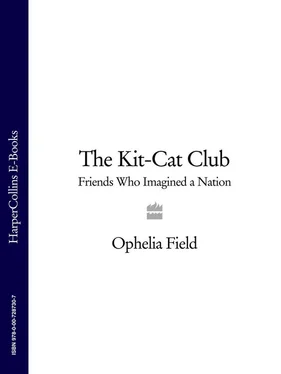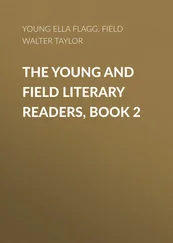[W]e very often contract such Friendships at School as are of Service to us all the following Part of our Lives.
The Spectator no. 313, 28 February 1712 1
THE SENSE of unbounded possibility felt by many individual Englishmen in the 1690s owed much to what one historian has dubbed the ‘educational revolution’ of the earlier seventeenth century. 2 A surprisingly high proportion of England's sons (though none of its daughters) attended grammar schools, dissenting academies or the liberally endowed foundation or charity schools, so that teaching was no longer the preserve of the clergy and private tutors in noble households. For the generations of boys who enjoyed this expansion in primary and higher education, there were lifelong side effects: the formation of friendships that felt as important to them as family bonds, and a lasting enthusiasm for all-male camaraderie that would express itself subsequently in all-male clubbing.
Westminster School, refounded by Elizabeth I, was a private London school that was now expanding its intake and supplying a new breed of gentleman to government offices and the professions. Jacob Tonson once explained that whereas Eton was ‘very much filled by the Sons of Quality & who are not to be much pressed to study’, Westminster produced ‘manly Orators, & the very air of London brings on the Improvement of Youth for any business of the world…’ 3 There, in around 1680–2, a gang of three schoolboys, known among themselves as ‘Matt’ (Matthew Prior), ‘Chamont’ (Charles Montagu) and ‘Cat’ (George Stepney), formed a bond of friendship that would not weaken for a full two decades, until the day when one of them dramatically betrayed another.
The three boys slept in a dilapidated former granary next to Westminster Abbey, where, in fireless rooms reeking of damp wool socks and cheap candles, they spent their evenings translating and memorizing passages from classical authors, preparing to be tested at six the next morning. Amid mild malnutrition, older boys could receive extra food from the table of the headmaster, Dr Busby, if they composed particularly well-turned Latin epigrams. The template was set: food in exchange for wit. ‘Chamont’ shared the scraps of meat his epigrams won with his two younger friends, and with his earnest little brother ‘Jemmy’, also at the school.
Enduring the hardships of Westminster's regime not only formed firm bonds of male friendship but also made the three boys mistake themselves for social equals, despite widely varying family backgrounds. Matt Prior had by far the humblest origins and was only at the school thanks to a fairytale stroke of good luck. One day in the 1680s, he had been working at the Rhenish Wine House, a fashionable Whitehall tavern owned by his vintner uncle, when the ageing Restoration rake, Charles Sackville, 6th Earl of Dorset, came in with some friends and noticed that Matt was working behind the bar with a copy of Horace in his hand. To test whether the boy understood what he read, the noblemen asked him to translate one of Horace's odes into English, and they were impressed when he quickly returned with a translation in metric verse. No matter how many times they repeated the test, Matt delivered. Dorset learned that Matt's joiner father had sent him to Westminster School some years earlier, where he had been taught Latin, but then, when his father died, his uncle had withdrawn him ‘in the middle of the third form’ to work at the Rhenish. 4 Dorset remedied this situation by asking the Dean of Westminster to readmit Matt to the school at the Earl's personal expense, thereby becoming Prior's first patron.
At the other extreme, Charles Montagu was the grandson of the 1st Earl of Manchester, whose London residence, Manchester House, stood imposingly across from the Rhenish Wine House. Despite his venerable family name, however, Montagu was a younger son of a younger son and knew his future would depend largely upon his own efforts. George Stepney (nicknamed ‘Cat’ because he always seemed to land on his feet) similarly had no expectation of a significant inheritance, while being acutely aware of his own intelligence. Stepney's father, though briefly a Groom of Charles II's Privy Chamber, had essentially been a grocer and died in debt. His widowed mother survived by renting out properties in Scotland Yard. Stepney's rank therefore fitted roughly equidistant between Prior's near-total obscurity and the ancient lineage of the Montagus. 5
Montagu, Prior and Stepney resolved to stay together at university. As Westminster's top scholar, Stepney could afford to turn down a place at Christ Church, Oxford, to join Montagu at Trinity College, Cambridge, to which Montagu had been elected some years earlier. In 1683, Prior joined them in Cambridge, attending St John's, where he was able to gain a scholarship and so save Lord Dorset considerable expense. Matt's background would have been less unusual at Cambridge than at Westminster since the majority of Cambridge students were non-gentry by this date. Prior had several advantages over most of his ambitious fellow students: Dorset's vested interest in his future, a naturally magnetic wit, and epicene good looks, with bright blue eyes under a mop of dark hair.
While he was at Cambridge, Prior maintained his connection with Dorset, sending an epistolary poem comparing the poor mutton at St John's with the ‘kindest entertainment’ he had enjoyed at his patron's table. 6 Then, in February 1685, Montagu, Prior and Stepney decided to build on Lord Dorset's interest in Prior and bring themselves collectively to the Earl's notice. It was a good moment to apply to Dorset as he had recently inherited his family seat at Knole in Kent, and expected further enrichment through his second marriage to a 17-year-old heiress. Prior, Stepney and Montagu therefore each wrote Dorset a poem on the death of Charles II, criticizing the accession of his crypto-Catholic brother James. These poetic offerings led Dorset to invite Prior's two chums to London to receive the benefit of some high society introductions. Montagu accepted Dorset's invitation, but Stepney believed he could not afford to enter London society without an income. Montagu therefore used his family contacts to help Stepney find a diplomatic posting in Hamburg, to which he travelled directly from Cambridge. The pretence of the boys' social equality was already beginning to wear thin.
In 1687, Montagu and Prior sat over a bottle in the Middle Temple rooms of Montagu's brother Jemmy and composed a parody of a recent Dryden poem about the Catholic and Anglican churches. They correctly guessed that the Whiggish Lord Dorset would be pleased by such a parody, which they entitled The Hind and the Panther Transvers'd To the Story of The Country-Mouse and the City-Mouse . Dorset circulated the poem widely among his political allies who opposed James II's religious policies during the tense year preceding the Revolution. Prior later claimed he did nothing more than take dictation from Montagu when they collaborated on the Mouse poem, but it is hard to know whether this was just Prior's way of flattering his friend after the latter became a rich and powerful man. If true, it would be less unjust that Dorset's recompense for the poem was to promote Montagu but not the more needy Prior, prompting the wry observation that ‘one Mouse ran away with all the Bacon, whilst the other got Nothing but the empty Cupboard’. 7 When William arrived in England the following year, the Dutchman already knew of the poem; Dorset introduced the impish 27-year-old Montagu as its author, ‘Mouse Montagu’, and the soon-to-be-crowned King gave ‘the Mouse’ £500 ‘to make a man of him’. 8
From this point on, Montagu determined to follow Dorset's example and be more statesman than struggling poet. 9 Montagu left a frank explanation of this choice, in which he is likeably without illusions:
Читать дальше












